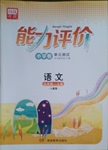
Every possible means to work out the problem, but it is too difficult for us.
A. hunting for B. carrying on C. looking after D. bringing up
 能力评价系列答案
能力评价系列答案 唐印文化课时测评系列答案
唐印文化课时测评系列答案科目:高中英语 来源: 题型:阅读理解
The common cold is the world's most widespread illness, which is plagues(疫病) that flesh receives.
The most widespread fallacy(谬误) of all is that colds are caused by cold. They are not. They are caused by viruses passing on from person to person. You catch a cold by coming into contact, directly or indirectly, with someone who already has one. If cold causes colds, it would be reasonable to expect the Eskimos to suffer from them forever. But they do not. And in isolated Arctic regions explorers have reported being free from colds until coming into contact again with infected people from the outside world by way of packages and mail dropped from airplanes.
During the First World War soldiers who spent long periods in the trenches(战壕), cold and wet, showed no increased tendency to catch colds. In the Second World War prisoners at the notorious Auschwitz Concentration Camp(奥斯维辛集中营), naked and starving, were astonished to find that they seldom had colds. At the Common Cold Research Unit in England, volunteers took part in Experiments in which they gave themselves to the discomforts of being cold and wet for long stretches of time. After taking hot baths, they put on bathing suits, allowed themselves to be with cold water, and then stood about dripping wet in drafty room. Some wore wet socks all day while others exercised in the rain until close to exhaustion. Not one of the volunteers came down with a cold unless a cold virus was actually dropped in his nose.
If, then, cold and wet have nothing to do with catching colds, why are they more frequent in the winter? Despite the most pains-taking research, no one has yet found the answer. One explanation offered by scientists is that people tend to stay together indoors more in cold weather than at other times, and this makes it easier for cold viruses to be passed on.
No one has yet found a cure for the cold. There are drugs and pain suppressors(止痛片) such as aspirin, but all they do is relieve the symptoms. O%
71. The writer offered examples to support his argument.
A.4 B. 5 C. 6 D. 3
72. Which of the following does not agree with the chosen passage?
A. The Eskimos do not suffer from colds all the time.
B. Colds are not caused by cold.
C. People suffer from colds just because they like to stay indoors. . .
D. A person may catch a cold by touching someone who already has one.
73. Arctic explorers may catch colds when .
A. they are working in the isolated arctic regions
B. they are writing reports in terribly cold weather
C. they are free from work in the isolated arctic regions
D. they are coming into touch again with the outside world
74. Volunteers taking part in the experiments in the Common Cold Research Unit .
A. suffered a lot B. never caught colds C. often caught colds D. became very strong
75. The passage mainly discusses .
A. the experiments on the common cold B. the fallacy about the common cold
C. the reason and the way people catch colds D. the continued spread of common colds
查看答案和解析>>
科目:高中英语 来源: 题型:阅读理解
When someone gives you advice, listen without judgment, try to find value in what you’re hearing, and say: “Thank you”. This wise advice is easy to understand yet hard to practice. I’ll give you an example from my life when I totally blew it in terms of practising what I teach.
In my work I travel constantly. I always put off going to the airport until the last second. My wife, Lyda, was sitting next to me in the front seat. I was racing along and not paying much attention. Lyda cried out! “Look out! There is a red light up ahead.”
Being a trained behavioral science professional—who teaches others the value of encouraging advice—I naturally screamed at her: “I know there is a red light up ahead! Don’t you think I can see?” When we arrived at the airport, Lyda didn’t speak to me. I wondered why she seemed mad at me.
During the flight to New York, I did a cost-benefit analysis. I asked myself: “What was the cost of just listening when Lyda called out the warning? Zero.” I then reasoned: “What was the potential benefit? What could have been saved?” Several potential benefits came to mind, including her life, my life, and the lives of other people.
I landed in New York feeling ashamed of myself. I immediately called Lyda and told her my cost-benefit story. I convinced her: “The next time you help me with my driving, I am just going to say, ‘Thank you.”
A few months passed, and I had long forgotten the incident. Again, I was racing off to the airport, when Lyda cried out: “Look out for the red light!” I was embarrassed, and then shouted: “Thank you!”
I’m a long way from perfect, but I’m getting better. My suggestion is that you get in the habit of asking the important people in your life how you can do things better. And be ready for an answer. Some people may tell you things like “Look out for the red light.” When this happens, remember that there is possibly some potential benefit. Then just say: “Thank you.”
45. What do we know about the author?
A. He is expert at behavioral science. B. He is gifted in cost-benefit analysis.
C. He seldom takes his wife’s advice. D. He often runs the red traffic light.
46. The underlined part “blew it” in Paragraph 1 probably means “ ”.
A. became annoyed with the adviser B. forgot the practical method
C. failed to say “Thank you” D. lost personal judgment
47. It can be inferred from the passage that people .
A. tend to be defensive when given advice
B. intend to follow others’ suggestions
C. had better study behavioral science
D. should give their opinions patiently
48. The purpose of the passage is to advise people to .
A. do a cost-benefit analysis in daily life B. treasure others’ suggestions
C. learn from the author’s experiences D. discover potential benefits
查看答案和解析>>
科目:高中英语 来源: 题型:阅读理解
第三部分:阅读理解(共20小题;每小题2分,满分40分)
阅读下列短文,从每题材所给的四个选项A、B、C、D、中,选出最佳选项
A few weeks after Hurricane Katrina hit the Gulf coast, the Texas school where I teach collected furniture and other household items for a family from Louisiana that had lost everything. I thought of how sad it would be to lose all of the things that held so many priceless memories. Nothing could ever really replace a memory. I prayed I would be able to help the family in some ways , and at least give them practical things they could use.
I had a couple of old chairs in the house, and went into the spare bedroom to dig them out. Then I saw the wooden rocking chair(摇椅) in the corner. Deep brown , with a unique pattern of fruits and leaves edged in gold on the back. I’d never seen another like it. I used to rock my son to sleep in it when he was a baby. Talking about memories, I could never bear to part with that rocker. http://wx.jtyjy.com/
But a feeling suddenly swept over me. Give it away. “Do you really want to do this?” my husband asked. I said firmly, “Yes!” He helped me load the rocking chair into my car. “Doesn’t it hold sentimental(情感的)value for you?” I couldn’t explain it. I took the rocker to the school the next day. The woman in charge of the donations(捐赠品)for the Louisiana family loaded it into the back of her truck.
The very next day at school, the woman in charge came rushing into my classroom. “Angie, I have to tell you a story about that rocking chair!” she said.
The family was grateful for every single item we’d donated, they told her. Then they saw the rocker. Everyone stopped and stared. Then the granddaughter cried out, “Grandma, look! It’s your rocking chair!” http://wx.jtyjy.com/
My rocking chair was exactly like the one they had lost in the hurricane, the one that held their sweetest memories.
56. Why did the author feel sympathy for the family that had lost everything?
A. They met Hurricane Katrina.
B. They had no furniture and other items to use.
C. They lost the things holding memories.
D. They had to rebuild their house.
57. When thinking of having used the rocking chair the author .
A. decided to give it away B. asked her husband for advice
C. liked it more than before D. hated to part with it
58. We can infer from the passage that the author’s husband .
A. didn’t support the author’s social work B. didn’t agree to donate the chair
C. thought the rocking chair valuable D. could understand what she thought then
59. What’s the best title for this passage?
A. A good deed for a homeless family B. Comfort a family with a gift of memories
C. A piece of furniture donated to a family D. We all need the rocking chair
查看答案和解析>>
科目:高中英语 来源: 题型:
Mary is an honest girl; I say it, ________I don't like her.
A.even though B.as if C.as long as D.as though
查看答案和解析>>
科目:高中英语 来源: 题型:
—Has the little boy passed P. E. test?
—He has tried twice and the teacher will allow him to have third try.
A. the; 不填 B. a; the C. the; a D. the; the
查看答案和解析>>
科目:高中英语 来源: 题型:
We know from their greetings how much they expect ____ us. We won’t let them down.
A. of B. on C. for D. to
查看答案和解析>>
科目:高中英语 来源: 题型:
Sorry I’m so late, but you cannot imagine__________great trouble I took to find your house.
A.what B.how C.why D.when
查看答案和解析>>
科目:高中英语 来源: 题型:
________ May as planned at first, the Smiths decided to set out to Hainan at the end of April.
A. Instead of B. In spite of C. In place of D. In need of
查看答案和解析>>
湖北省互联网违法和不良信息举报平台 | 网上有害信息举报专区 | 电信诈骗举报专区 | 涉历史虚无主义有害信息举报专区 | 涉企侵权举报专区
违法和不良信息举报电话:027-86699610 举报邮箱:58377363@163.com